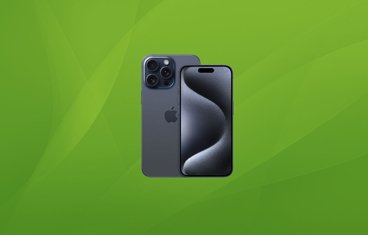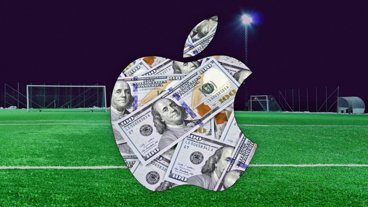Deep hardware discounts suggest sluggish sales of Google TV
Sony announced a promotional $100 price cut on its $399 Google TV device, an unusually deep discount for a brand new product, especially for Sony. While the company offered a variety of Black Friday discounts on other Blu-Ray products, none approached the 25 percent off fire sale of its new Google TV box.
Sony's combination Blu-Ray and Google TV device was just introduced last month, making the slashed price an indication that the devices weren't garnering much attention despite the media attention focused on Google TV and its use of Android. As TechCrunch observed, "this doesn’t look so well for Google’s living room takeover plans."
When Google TV goes bad
Google initially floated plans to line up licensees for its Google TV set top box in May, hoping to leverage its Android OS to deliver "an entertainment hub that searches all of your channels, recorded shows, YouTube, and other websites," as the company described at the time.
In a market where nobody has done very well, Google TV planned to leapfrog Apple's iTunes-tethered Apple TV device by offering an integrated web browser along with searchable cable TV in addition to Internet streaming content. Unlike Apple TV, Google currently has no iTunes equivalent to offer direct movie or TV digital downloads or rentals; it only supports streaming Netflix, Amazon and YouTube videos, as well as web-based content delivered via Adobe Flash and raw H.264.
The first few Google TV devices were met by prominent reviews characterizing it as a "geek product," with David Pogue of the New York Times complaining that it was "an enormous step in the wrong direction: toward complexity."
A second blow from the platform came from broadcasters, who as the Wall Street Journal reported in August, were "reluctant to partner with a service they believe encroaches on their turf."
That reluctance quickly turned into a full scale blockade of website traffic (via Flash or not) to Google TV from ABC, CBS, Fox, Hulu, NBC, and Viacom, dramatically narrowing the ability of Google TV buyers to use the device as it was originally advertised. The remaining features of the device put it in the category of Microsoft's beleaguered Media Center, but lacking that platform's integrated IPTV tuner and Tivo-like DVR playback features.
There's not currently an app for that
The other leg intended to prop up Google TV were custom Android apps targeted at HDTVs, but Google hasn't yet opened up an Android Market for its TV boxes, nor is its Google TV software development kit available yet. A few apps come bundled with the systems, including clients for Amazon, Netflix, and Pandora. Google also bundles its own Chrome web browser.
Google hasn't yet extended its Android Market beyond smartphones, not even to currently shipping Android tablets. In September, Google's director of mobile products Hugo Barra said "the way Android Market works is it's not going to be available on devices that don't allow applications to run correctly. Which devices do, and which don't will be unit specific, but [the current Android OS 2.2] Froyo is not optimized for use on tablets." Nor Google TV.
Barra added, "If you want Android Market on that platform, the apps just wouldn't run, [Froyo] is just not designed for that form factor. We want to make sure that we're going to create a application distribution mechanism for the Android market, to ensure our users have right experience."
Apple's chief executive Steve Jobs noted that fact when dismissing the "avalanche of tablets poised to enter the market," saying "nearly all of these tablets use Android. But even Google is saying don't use Froyo [the current release of Android OS], and instead to wait to use next years' version. What does it mean when a software maker says not to use their release and you use it anyway?"
Android fragmentation and Google TV
While Jobs didn't directly address Google TV as a product, he was critical of Android in general, stating that, "unlike Windows, where PCs have the same interface, Android is very fragmented. HTC and Motorola install proprietary user interfaces to differentiate themselves. The user left to figure it out."
Reviews of early Google TV offerings from Sony and Logitech have made similar observations on the fragmentation in the user interface that mirror Jobs' comments directed at Android smartphones and tablets.
Jobs also took issue with Google's Android Market policies, saying "there will be at least four app stores on Android which customers must search among to find the app they want and developers will have to work with. This will be a mess for users and developers. Contrast this with Apple's integrated app store. Has three times as many apps and offers developers one-stop shopping and [they] get paid swiftly."
In comments that apply broadly to Android's use in smartphones, tablets, and Google TV, Jobs added, "we think Android is very fragmented and becoming more fragmented by the day. We prefer integrated so the user doesn't have to be the systems integrator."
Android ads vs iOS paid apps
Apple hasn't yet announced any plans to open up a store for apps targeting Apple TV, choosing instead to revamp its offering at a lower $99 price point with a very simple interface and new AirPlay features that make the device more of a repeater for iTunes and iOS devices like the iPhone, iPod touch and iPad, which can already target Apple TV with AirPlay streaming audio and video.
Beyond the TV, Apple's App Store is also differentiated from Android Market in that the primary business model for iOS involves paid apps; Google's Android apps are almost entirely ad-supported. In part, this is because Android makes it easy to steal games, erasing the business model that has resulted in a healthy market for iOS development on the iPhone and iPad.
Google is also primarily interested in using Android as a way to display ads, as opposed to Apple's business centered on selling hardware. When Rovio, the developer of the popular "Angry Birds" iOS game, brought its title to Android, it only offered it as an free ad-based title, noting "that is the Google way," in a tweet. It later added that while not all Android apps were free, "the ones with more than 50K downloads are… We just hit 7M downloads on Android."
On the iOS platform, Angry Birds surpassed 10 million paid downloads as of the beginning of November. In total, the title had distributed 30 million paid and free versions across all platforms.
 Daniel Eran Dilger
Daniel Eran Dilger










 Chip Loder
Chip Loder
 Andrew Orr
Andrew Orr
 Marko Zivkovic
Marko Zivkovic
 David Schloss
David Schloss

 Malcolm Owen
Malcolm Owen

 William Gallagher
William Gallagher







